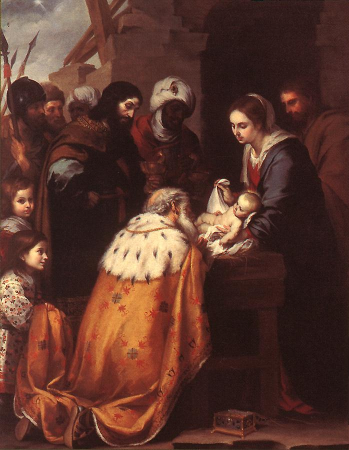From
Zenit:
In a statement issued today, Jesuit Father Federico Lombardi, director of the Vatican press office, said: "Archbishop Wielgus' conduct in the past years of the Communist regime in Poland has seriously compromised his authority, including before the faithful.
"Therefore, despite his humble and moving request for forgiveness, the resignation to the See of Warsaw and its speedy acceptance on the part of the Holy Father has seemed to be an appropriate solution to address the situation of disorientation that has been created in that nation."
Not exactly a clear-cut recitation of the facts on the ground as far as humble forgiveness preceded by minimizing and spinning, but hey, it's the Press Office.
The Vatican spokesman added: "It is a time of great suffering for a Church to which we all owe very much and which we love, which has given us pastors of the greatness of Cardinal Stefan Wyszybnski and, above all, Pope John Paul II.
"The universal Church must feel spiritually sympathetic to the Church in Poland and support her with prayer and encouragement, so that she will soon regain her serenity."
Hear hear! Amen.
Father Lombardi continued: "At the same time, it is appropriate to observe that the case of Archbishop Wielgus is not the first and will probably not be the last case of attack on personalities of the Church in virtue of the documentation of the services of the past regime.
So it's an attack? But wait, there's more.
"There is enormous material and, in attempting to assess its value and draw reliable conclusions, it must not be forgotten that it was produced by officials of an oppressive and blackmailing regime."
The press office director added: "After so many years of the Communist regime, when the great and untouchable figure of Pope John Paul II is no longer here, the present wave of attacks against the Catholic Church in Poland does not seem to be a sincere search for transparency and truth, but rather a strange alliance between persecutors of the past and other adversaries, a vengeance on the part of those who, in the past, had persecuted her and were defeated by the faith and the thirst for freedom of the Polish people."
Father Lombardi explained that members of the Church must be faithful to the truth: "'The truth will make you free,' says Christ. The Church is not afraid of the truth and, to be faithful to her Lord, her members must be able to acknowledge their own faults.
"We hope that the Church in Poland will be able to live and surmount with courage and lucidity this difficult period, so that she will be able to continue offering her precious and extraordinary contribution of faith and evangelical drive to the European and universal Church."
*rubs his forehead* Bolding is mine as usual.
After a brief recapitulation of the facts, Father Lombardi called for prayers for the Polish Church and he ended his remarks in the same fashion. Everything in between...
Can we say damage control for the bishop-selection process in Rome?
It's not about the archbishop being a former collaborator and his conduct since the details of his collaboration came out. It's not about reconciling Poland's communist era past with the present and bringing about reconciliation. Instead, it's about the Church's enemies levying attacks on Church personalities as a "a vengeance on the part of those who, in the past, had persecuted her and were defeated by the faith and the thirst for freedom of the Polish people."
The above is in US politics-speak called 'CYA'.
It doesn't even matter if the communists who persecuted the Church back in the day unearthed the documents and floated them in the press. That's really immaterial. Archbishop Wielgus' conduct isn't even the issue now. The dissatisfaction with the bishop selection process that allowed Wielgus to get into this situation in the first place has been growing lately and this little statement from the Press Office is not going to help matters at all. If Father Lombardi and his brethren had been smart, they would have announced the resignation, said a prayer for Poland and left it at that. The rest with attacks and blackmail and getting back at the Church just comes off as such an obvious attempt at deflecting blame in the aftermath.
Benedict had better sign the
motu proprio and release it and it had better be good. He is going to need the good press. It's Monday in Rome already. We'll see what the week brings.


.jpg)